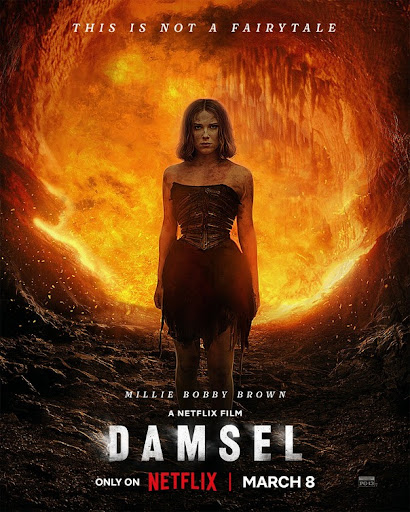To say that “Tenet” — the latest brain-wracking cinematic experience from auteur Christopher Nolan — has become one of my favorite films of all time oddly feels like an understatement. The film feels like it’s the culmination of Nolan’s previous works, taking themes and drawing inspiration from films like “Inception” and “Interstellar”; weaving in surreal cinematography, high-concept sci fi jargon and his trademark penchant for over-the-top audio design, with a Bond-esque film progression.
For those just looking for a spoiler-free breakdown and a quick “should you watch it?,” here it is: the premise of the film is that The Protagonist (John David Washington), is recruited into a mysterious shadow organization, Tenet, to prevent a catastrophic event worse than, as the film describes it, “nuclear holocaust.” He’s joined by Neil (Robert Pattinson), as he attempts to stop the abusive, megalomaniac Russian arms dealer Andrei Sator (Kenneth Branagh), save his wife Kat (Elizabeth Debicki) and discover what’s really at stake.
It’s a “Mission: Impossible” plot with a villain straight out of a Bond film; what makes it so incredible, or what others would have you to believe as “confusing”, is the added quirk of inversion. It’s not the same time-travel that you’d see in something like “Avengers: Endgame” or “Hot Tub Time Machine,” where you blip in and out across time. It’s the reversal of entropy; what we perceive to be the natural order of cause and effect is flipped; if time is a river, and it’s natural flow is our normal perception of it, to invert is to go against the current. In a dramatically flashy twist of the “going against and changing fate” trope, Nolan’s method of time travel lends itself very well to his style and aesthetic of directing.
If you’ve never been a fan of Nolan films, either because they were too overwhelming and you just wanted something easy to digest and munch on popcorn to, or you simply just dislike his art style, then this film is definitely not for you. However, if you’re a fan of his work, or even a first-timer, I cannot stress how imperative it is that you watch this film — twice even. Seeing it in IMAX was one of the best decisions I’ve made all year. Letting my eyes and ears just soak in everything Nolan had to offer, gave me that rush you get only from a few select movies.
Spoilers ahead: don’t read if you’re even considering watching Tenet.
This film is absolutely bonkers in the best way possible.
This film is absolutely bonkers in the best way possible. While Nolan’s films are often criticized for requiring too much thought, and this film is one that while being definitely criticized for being “too complex,” it actually advises you to, and I quote, “feel it”. The moment I heard Clémence Poésy’s character recite this to The Protagonist, I immediately understood what Nolan was prepping the audience for. While some reviews might take this line and say, “Nolan should’ve stuck with this; instead, the film is a confusing mess,” I think they (the reviewers) simply didn’t adhere to this philosophy enough. You have to really open your mind and admit to yourself that, “Hey, there will be some things here that I simply won’t get at this time” and just take the movie in its entirety. This movie’s title — a palindrome (keep this concept in mind) — really sums up what it takes to really enjoy it: belief. Belief in the sense that you’re putting yourself into this world that Nolan has constructed, and taking all the sci-fi mumbo-jumbo as reality and moving with it.
Going back to the palindrome note: “Wow” was all I was thinking throughout the movie. It was during the highway chase scene’s conclusion, where The Protagonist fully learns what inversion truly is and its devastating consequences, and hops in that ominously familiar silver car that we see at the beginning of the sequence, that I saw what Nolan’s directorial vision was. It’s like everything in a scene can be considered as a Chekhov’s gun: that car that just crashed and exploded out of nowhere? The Protagonist is the one that crashes it in the future while trying to fix the past. That woman Kat sees diving off of her husband’s boat, who she says she’s envious of because she looks free? It’s her future self at the climax of the movie after killing Sator, thus freeing herself. Why is that enemy armored vehicle fleeing from the battle, swerving away from the good guys during the temporal pincer attack? It’s Neil trying to save The Protagonist and Ives from a trap set by Sator. There is even a literal Chekhov’s gun, in that the Tenet scientist (Clémence Poésy) explains at the beginning of the movie that an inverted bullet wound is far worse than a normal one. What happens later? Kat is shot by Sator during a torture scene and she needs to be inverted for her wound to heal.
Jesus Christ.
My brain was utterly fried, in the best way possible mind you, as I was leaving the theater with my dad. My neurons and synapses were firing at light speed piecing everything together as we walked back to the car. It’s that moment of clarity after a film as complicated as this that fully completes the experience.
In a time where the movie theater experience is essentially dying, and its untimely demise is further accelerated by COVID-19, “Tenet” is Nolan’s attempt at saving it. It truly is a film that deserves to be experienced in theaters; dozens of speakers set to the imposingly majestic tune of soundtrack legend Ludwig Göransson, and a massive screen dominating your vision. Your body reverberated with deep bass sounds, your retinas blasted with incredible visuals and set pieces and your mind immersed in pure, awe-inspiring storytelling. Yet, it isn’t just you experiencing this — it’s the entire audience. You all, a collective entity, watching a legendary masterpiece headed by an equally legendary filmmaker. This is what Tenet is, and it is all the better for it.















































